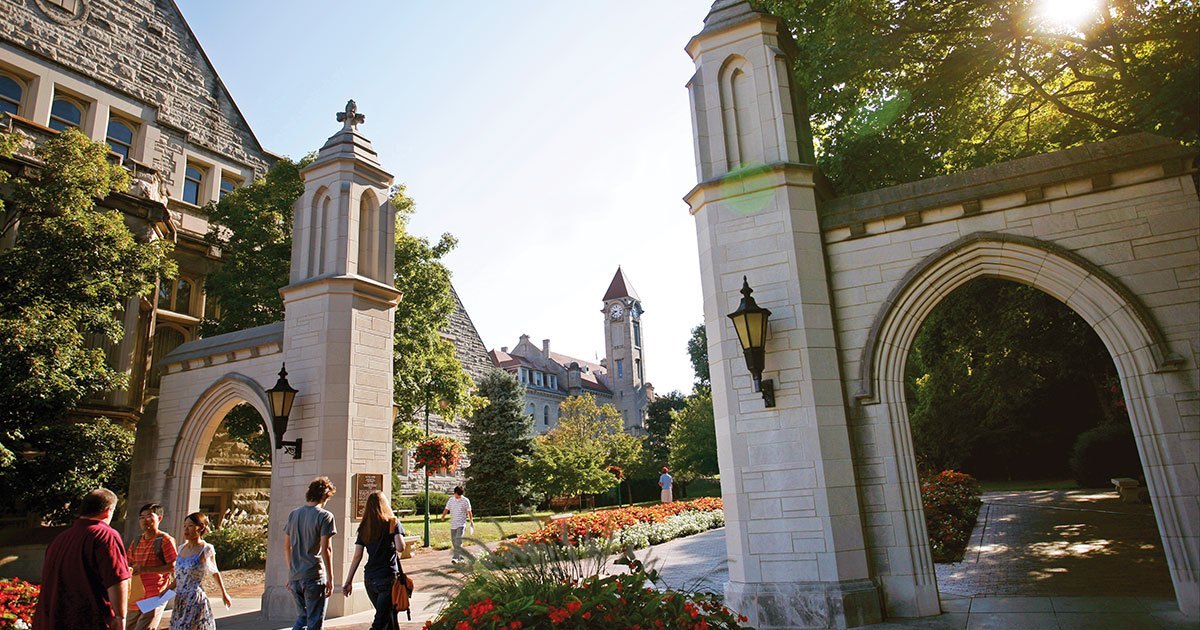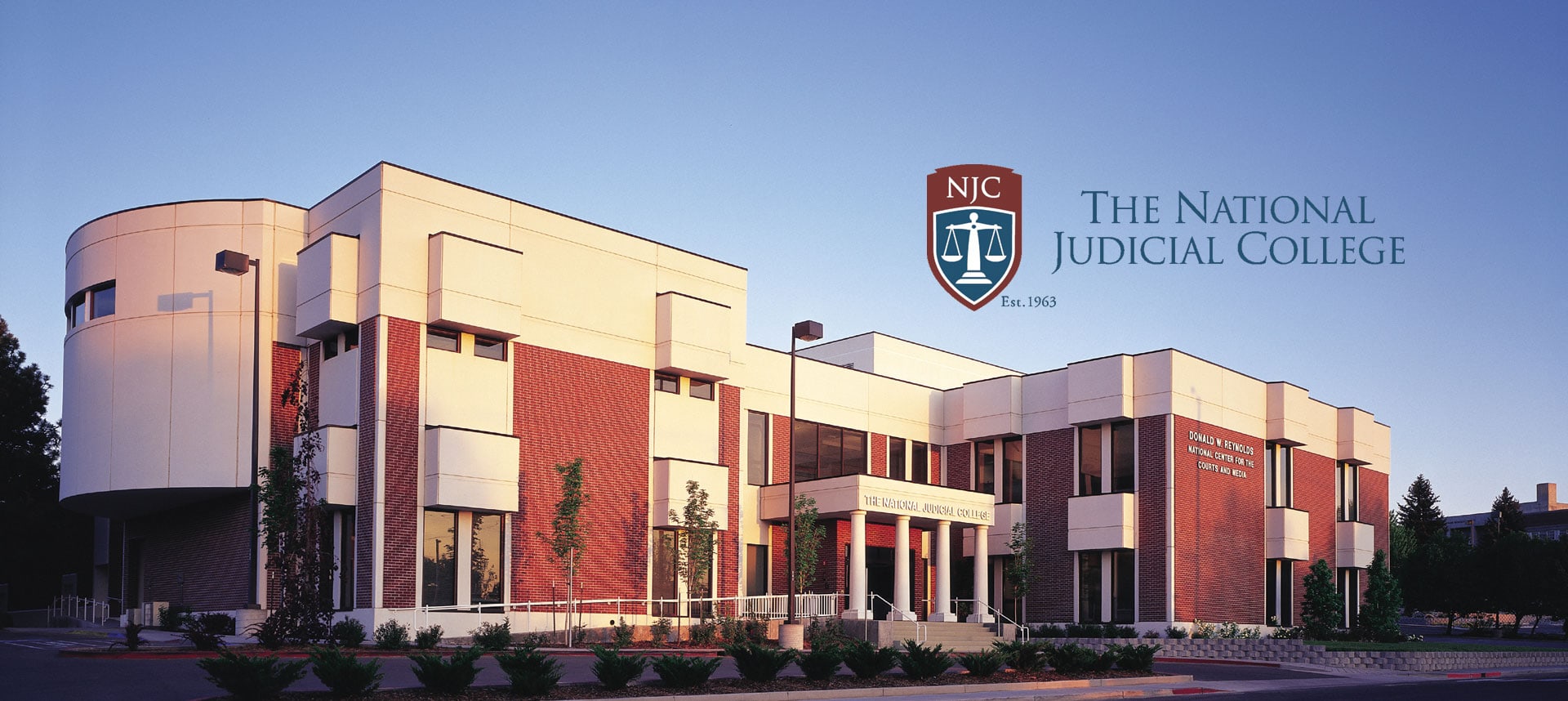
This month’s poll suggests that two public university law schools in the Midwest have produced more NJC alumni than any others.
The top schools – both with 12 judges – were the Maurer School of Law at Indiana University Bloomington and the University of Iowa College of Law.
A total of 761 judges responded to the emailed poll question of “What law school did you go to?” There were scores of different answers, and nine judges said they didn’t go to law school at all.
Here’s the list of schools with at least nine alumni who responded to the poll:
- Indiana University Bloomington Maurer School of Law (12)
- University of Iowa College of Law (12)
- Creighton University School of Law (11)
- University of Minnesota Law School (11)
- University of Tennessee College of Law (11)
- University of Texas at Austin School of Law (11)
- University of Memphis Cecil C. Humphreys School of Law (10)
- University of Michigan Law School (10)
- University of New Mexico School of Law: 10
- University of Arizona James E. Rogers College of Law (9)
- University of Denver Sturm College of Law (9)
- University of Missouri School of Law (9)
- University of North Dakota School of Law (9)
- Southwestern Law School (9)
- Stetson University College of Law (9)
- West Virginia University College of Law (9)
Harvard Law School had eight alumni, the same as J. Reuben Clark (Brigham Young), Drake, Gonzaga, UC Hastings, McGeorge (College of the Pacific), Notre Dame and Wisconsin.
Yale had four.
Proud Indiana alumnus and Colorado senior judge W. Terry Ruckriegle wrote of his alma mater: “Great school with great instructors and opportunities to intern and work while learning.”
Iowa alum John C. Nelson, a district association judge of the 3rd Judicial District in the Hawkeye State, wrote simply, “Go Hawks!”
Here are some of the comments left about other law schools, and about not attending law school:
Antioch School of Law: “ASL was founded by Yale Law graduates, Jean and Edgar Cahn, who have been credited with founding Legal Services Corporation. It was a unique law school because students participated in legal clinics all three years. Although the law school was considered liberal/progressive, then-Chief Justice Warren Burger was one of its biggest proponents because he felt law schools needed to better prepare lawyers for the practice of law. Today it is known as the University of the District of Columbia.” Anonymous
Atlanta Law School: “My school was not ABA accredited even though the only criteria it did not meet was a full-time faculty. I took and passed the same bar as ABA school grads and have served alongside ABA-school grads but have been discriminated against in obtaining jobs/positions throughout the years just because I went to a non-ABA school. It’s past time to recognize people based on their merits and not where they went to school.” Anonymous
J. Reuben Clark Law School (Brigham Young): “Law school was difficult but a rite of passage. I would not like to repeat this rite of passage.” Anonymous
“By The Seat of Your Pants Law School”: “I had 30 years of law enforcement experience…. I feel bad for new judges with no experience.” Hon. William R. Jacobs, Town of Catskill (New York) Court
CUNY School of Law: “Love their motto and live by it: ‘Law in the service of human needs.’” Edwina Richardson-Mendelson, deputy chief administrative judge for justice initiatives, Supreme Court of New York.
Dickinson School of Law: “The real one, before the merger with Penn State, when it was the oldest independent law school in the nation.” Anonymous
Duquesne University: “I was a county detective and (went to) night school 4 years. Duquesne offered me the opportunity to become a lawyer and eventually a judge.” Michael E. McCarthy, Court of Common Pleas, Pittsburgh.
Florida State University College of Law: “I had never dreamt bigger than the pursuit of the degree. The legal career I was able to experience because of FSU’s support was something I never could have imagined.” Claudia Rickert Isom, senior judge, Tampa.
Harvard Law School: “It lives up to its reputation.” Anonymous
Howard University School of Law: “Thankful for the opportunity to study law at such a historical institution and one that helped change the scope and expanse of American social justice.” Col. James M. Durant III, USAF Ret., Senior Executive Service
Loyola Law School, New Orleans: “The law school held its focus on social justice all these many years. I credit my public service to that Jesuit education.” Anonymous
Mississippi College School of Law: “It is a small school in Jackson, Mississippi. I felt 100 percent prepared when I left school, and I am grateful for the professors and education. I have never felt bested by anyone because of where I went to law school.” Robert Hildum, administrative law judge, Washington, D.C.
Mitchell Hamline School of Law (St. Paul, Minnesota; formerly Hamline University School of Law): “Hamline was the only law school in the country to give me a full, non-waitlisted acceptance. They took a chance on me, and I am grateful beyond words. Since the early 2000s I have been an adjunct professor at the school; the last 10 years I have taught a weekend summer program called Law and the Business of Baseball. Mitchell-Hamline and their staff are an incredible group of intelligent, dedicated legal educators who put their students first.” Louis Schiff, Broward County (Florida) Court.
“The Best One Ever – William Mitchell College of Law” (now Mitchell Hamline): “Great school that had me ready to work in a law firm or hang my own shingle.” Eric A. Aarseth, Anchorage Superior Court
None: “Was accepted into University of Wisconsin Law School, Madison, WI, but was overseas on an exchange program and unable to enroll with my class in 1969, so I pivoted into teaching/coaching and business. Kept interested in the law. Fifty years later I was elected municipal judge for our city. Law degree not required.” Edwin Schellin, Columbus (Wisconsin) Municipal Court.
UC Hastings College of the Law: “Involuntarily inducted/drafted halfway through 1L in ’68. UC Hastings held my slot for my 4 yrs. on active duty. I transferred to the CA National Guard and I returned to UC Hastings in ’72 to graduate in ’75. Hooah!” Larry G. Sage, senior judge, Sparks, Nevada.
University of Texas School of Law: “I ended up going to law school by accident. Best serendipity in my life. I never regretted it.” Kitty Schild, senior judge, El Paso, Texas
University of Maine School of Law: “A wonderful school where I was surrounded by those who now are lions of the bench and bar in our state.” Joseph H. Field, District Court, West Bath, Maine
University of Michigan Law School: “U of M opened up China through contact in Hawaii. Once the first person from the islands attended and found it welcoming, others followed, including one governor.” Anonymous
University of New Mexico School of Law: “Attended 1975 to 1978. Great clinical law program!!! I tried five jury trials prior to graduation, something that takes years for many practicing lawyers to accomplish!” Dan Bryant, district judge, Division III, Lincoln and Otero counties, New Mexico
University of San Diego School of Law: “It was OK if you like beautiful, palm-tree-lined lanes and can put up with those dreadfully cold 65-degree winter nights. Oh, and that view of the Pacific Ocean? All law schools have that, right?” Anonymous
University of Wyoming College of Law: “It was a great education for the cost. I met many of the future leaders of the state there, and my education allowed and continues to allow me to hold my own with graduates of any other law school.” Anonymous
West Virginia University College of Law: “My class was the first to have to take the WV bar exam after graduating. Previously, graduates of the only law school in the state were simply admitted to the bar.” Daniel J. Doherty III, board counsel, Department of Labor, Baltimore
* Each month the College emails an informal, non-scientific, one-question survey to its more than 12,000 judicial alumni in the United States and abroad. The results, summarized in the NJC’s Judicial Edge Today, are not intended to be characterized as conclusive research findings.

The Hon. Mary-Margaret Anderson (Ret.), a retired administrative law judge with the California Office of Ad...

Happy October, Gaveliers faithful. Are you loving this or what? No one believed a team made up of judges...


Hon. Diane J. Humetewa, the first Native American woman and the first enrolled tribal member to serve as a ...

Retired Massachusetts Chief Justice Margaret H. Marshall has been selected as the 2024 winner of the presti...